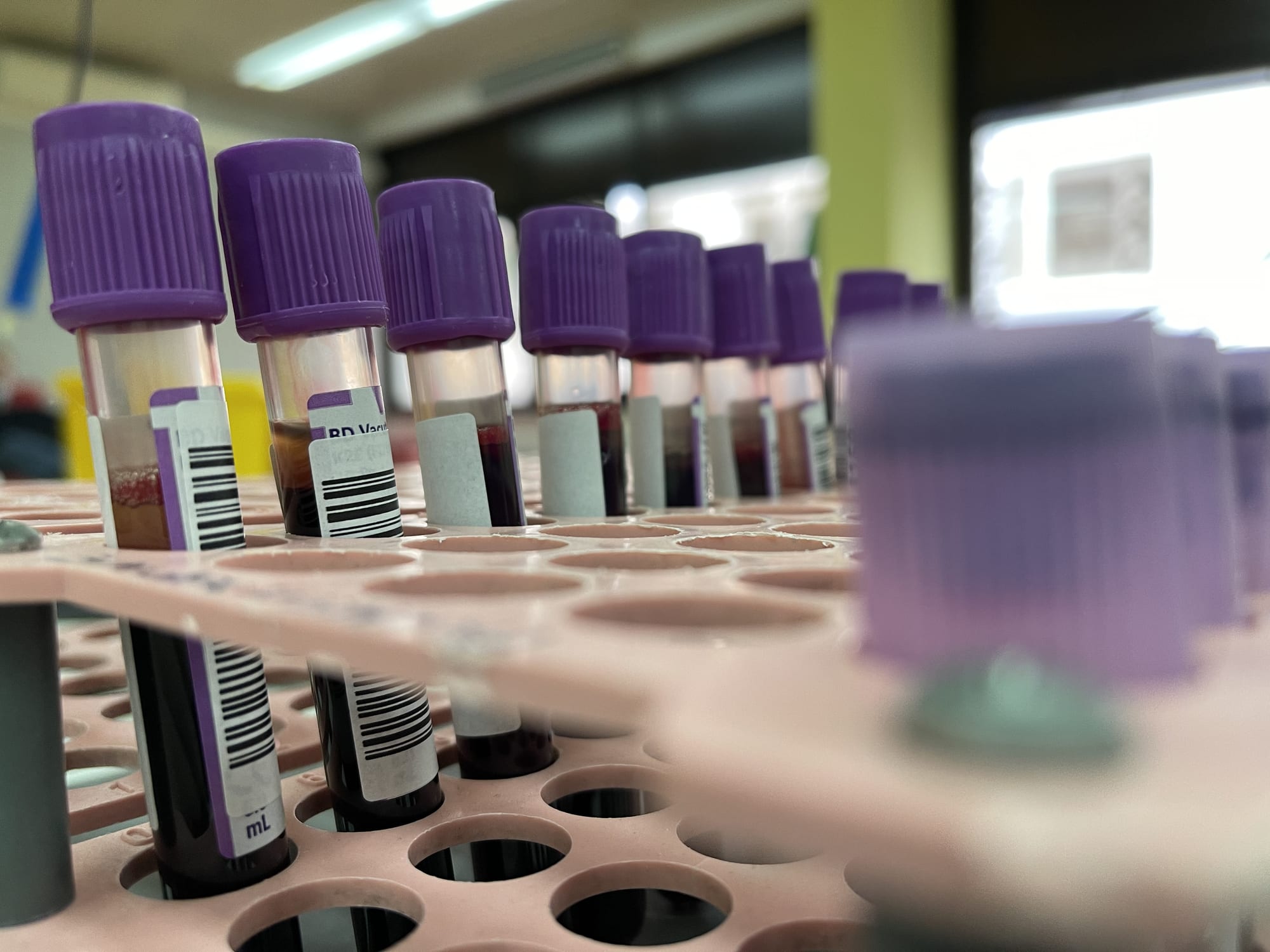TOPLINE
Monkeypox patients may experience neurological complications like confusion and seizures in rare cases, while psychological issues may be more common, a study published in eClinicalMedicine found, amid an apparent slowdown in new U.S. monkeypox infections.
KEY FACTS
Roughly 2.7% of patients diagnosed with monkeypox experienced at least one seizure, while 2% had encephalitis, serious brain inflammation that can cause long-term disability, according to researchers, who reviewed 19 studies with a total of 1,512 participants in the U.S., Nigeria, Democratic Republic of Congo, Republic of Congo and the United Kingdom.
Another 2.4% of patients experienced confusion, though researchers noted most neurological issues occurred among patients who were hospitalized with the illness, with limited data available for more milder cases.
Psychological issues including depression and anxiety were more prevalent among hospitalized patients, which may in part be due to disfiguring lesions that can be caused by monkeypox as well as the stigma attached to the disease, researchers noted.
Researchers were unable to estimate how long these issues lasted, as most studies did not contain enough information on long-term follow-up with patients.
But the study suggests a need for “ coordinated surveillance for such symptoms” and to be “watchful of psychiatric symptoms” to ensure patients have access to good care, said study co-author Dr. James Badenoch, with Barts Health NHS Trust, which runs five hospitals in London.
WHAT WE DON’T KNOW
Exactly how monkeypox infections affect the brain. Researchers noted symptoms of anxiety and depression are common among patients hospitalized and quarantined with any infectious disease, and viral infections can have profound psychological effects such as fear, loss, discrimination and stigma. Researchers said more studies are needed to estimate the prevalence and longevity of neurological complications among monkeypox patients.
CONTRA
The monkeypox outbreak appears to be slowing in the U.S. with more vaccines available and Americans taking more actions to reduce the spread of the disease, officials said Wednesday. The U.S. had 1,699 new infections the week ending September 7, down 440 new cases from the week prior, according to the Centers for Disease Control and Prevention. Global cases are also on the decline, but the U.S. still has the most monkeypox cases out of any country in the world, with some 21,274 cases reported as of September 7, according to CDC data.
KEY BACKGROUND
Previous research has found the ongoing global outbreak of monkeypox may be resulting in different kinds of symptoms than those reported in previous outbreaks, including rectal pain and penile swelling. The ongoing global outbreak has disproportionately affected men who have sex with men, though anyone can become infected through close physical contact contaminated materials or a person who is infected. Fatalities from the disease are rare, with some 17 deaths reported this year among more than 50,000 infections, according to the CDC. Local health officials are also investigating the death of a severely immunocompromised patient in Texas who was diagnosed with monkeypox, which could mark the first U.S. death in the ongoing outbreak. Monkeypox symptoms typically last two to four weeks, according to the World Health Organization. Both the WHO and the U.S. have declared monkeypox a public health emergency to better streamline responses to the disease and to ramp up vaccination in the U.S. The U.S. has also adopted a new vaccination method to maximize the number of shots available after facing criticism for a slow vaccine rollout.
TANGENT
The National Institute of Allergy and Infectious Diseases announcedThursday it’s launching a new trial to test the effectiveness of administering the Jynneos monkeypox vaccine—the only shot approved by the Food and Drug Administration to protect against monkeypox—intradermally. The new strategy, which White House officials call “dose sparing,” allows health care workers to extract up to five doses from a one-dose Jynneos vaccine vial to administer into the skin instead of a full dose into fat tissue. The federal government plans to enroll 200 people ages 18 to 50 who have not been vaccinated against smallpox or monkeypox.
BIG NUMBER
461,049. That’s how many vaccines have been administered across 35 U.S. jurisdictions sharing data with the CDC.
By Robert Hart, Forbes Staff
